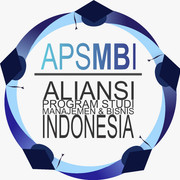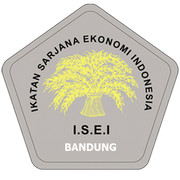Process Innovation and its Impacts on MSMEs Resilience in Ghana: The Moderating Role of Enterprise Risk Management
Abstract
Firms’ resilience is of key interest to practitioners, owing to the fact that in most developing countries including Ghana, over 60 percent MSMEs do not survive the first five years of business operations. This study looks at how enterprise risk management may influence the impact of process innovation practices of Lean Six Sigma and Quality management Systems on MSMEs' resilience. The study used a quantitative research design, collecting survey data via Google Forms from a sample of 356 MSMEs and analysing it using SPSS software. The results indicated that MSMEs' resilience can be positively impacted by Lean Six Sigma practices. On the other hand, Quality management Systems could negatively affect the resilience of firms. Again, the research illustrates that enterprise risk management practices enhance the impact of process innovation practices on firms’ resilience. Specifically, the findings showcase the importance of utilizing process innovation practices and risk management as key principles in obtaining resilient MSMEs. Implications of these findings are important for managers of MSMEs, policy makers and researchers.
Keywords
Full Text:
PDFReferences
Al-Banna, A., Rana, Z. A., Yaqot, M., & Menezes, B. (2023). Interconnectedness between Supply Chain Resilience, Industry 4.0, and Investment. Logistics, 7(3). https://doi.org/10.3390/logistics7030050
Ali, A., Warren, D., & Mathiassen, L. (2017). Cloud-based business services innovation: A risk management model. International Journal of Information Management, 37(6), 639-649. https://doi.org/10.1016/j.ijinfomgt.2017.05.008
Ali, M. A., Hussin, N., Haddad, H., Alkhodary, D., & Marei, A. (2021). Dynamic capabilities and their impact on intellectual capital and innovation performance. Sustainability (Switzerland), 13(18). https://doi.org/10.3390/su131810028
Amaglo, J. K., Committee, R., Chairperson, C., Member, C., Officer, C. A., & Riedel, E. (2019). Walden University.
Andreini, D., Bettinelli, C., Foss, N. J., & Mismetti, M. (2022). Business model innovation: a review of the process-based literature. In Journal of Management and Governance (Vol. 26, Issue 4). Springer US. https://doi.org/10.1007/s10997-021-09590-w
Araújo, C. M., Soliani, R. D., de Oliveira, D. A., de Lima Júnior, F. B., de Freitas Ferreira Alves, S., da Silva Nora, L. A. R., da Silva, M. E., & Siqueira, R. M. (2024). Sustainable Transportation in the Brazilian Agroindustrial Supply Chain: a Literature Review. In Revista de Gestao Social e Ambiental (Vol. 18, Issue 5). https://doi.org/10.24857/rgsa.v18n5-056
Buer, S. B. (2022). University of Cape Coast Supply Chain Quality Management Practices and Competitive Advantage of Food Processing Firms in Ghana: the Moderating Role of Innovation. https://ir.ucc.edu.gh/xmlui
Business, T., Choudhury, R. G., Factors, C., & Owned, F. (2016). Relationship between contextual factors , business performance , and strategy : a study of manufacturing and service industries in India. 7(5), 295–302.
Camacho-Garza, A., Acevedo-Sandoval, O. A., Otazo-Sánchez, E. M., Roman-Gutiérrez, A. D., & Prieto-García, F. (2022). Human Rights and Socio-Environmental Conflicts of Mining in Mexico: A Systematic Review. Sustainability (Switzerland), 14(2). https://doi.org/10.3390/su14020769
Chen, J., Yin, X., & Mei, L. (2018). Holistic Innovation: An Emerging Innovation Paradigm. International Journal of Innovation Studies, 2(1), 1-13. https://doi.org/10.1016/j.ijis.2018.02.001
Chirumalla, K. (2021). Building digitally-enabled process innovation in the process industries: A dynamic capabilities approach. Technovation, 105, 102256. https://doi.org/10.1016/j.technovation.2021.102256
Chitsimran, Pandey, A., & Mehak, P. (2020). MSME Financing Gaps –A Review of Literature for the Period 1960 To 2020. Solid State Technology, 63(6), 18164-18203.
Choi, Y., Ye, X., Zhao, L., & Luo, A. C. (2016). Optimizing enterprise risk management : a literature review and critical analysis of the work of Wu and Olson. Annals of Operations Research, 237(1), 281–300. https://doi.org/10.1007/s10479-015-1789-5
Chugani, N., Kumar, V., Garza-Reyes, J. A., Rocha-Lona, L., & Upadhyay, A. (2017). Investigating the green impact of Lean, Six Sigma and Lean Six Sigma: A systematic literature review. International Journal of Lean Six Sigma, 8(1), 7-32. https://doi.org/10.1108/IJLSS-11-2015-0043
Corrales-Estrada, A. M., Gómez-Santos, L. L., Bernal-Torres, C. A., & Rodriguez-López, J. E. (2021). Sustainability and resilience organizational capabilities to enhance business continuity management: A literature review. Sustainability (Switzerland), 13(15). https://doi.org/10.3390/su13158196
Costa, L. B. M., Godinho Filho, M., Fredendall, L. D., & Gómez Paredes, F. J. (2018). Lean, six sigma and lean six sigma in the food industry: A systematic literature review. Trends in Food Science and Technology, 82, 122-133. https://doi.org/10.1016/j.tifs.2018.10.002
Gomes de Carvalho, G. D, Resende, L. M. M. de, Pontes, J., Gomes de Carvalho, H., & Mendes Betim, L. (2021). Innovation and Management in MSMEs: A Literature Review of Highly Cited Papers. SAGE Open, 11(4). https://doi.org/10.1177/21582440211052555
Donaldson, L. (2006). Chapter 2 THE CONTINGENCY THEORY OF ORGANIZATIONAL DESIGN : CHALLENGES. Organization Design, 284.
Duong, A. T. B., Hoang, T. H., Nguyen, T. T. B., Akbari, M., Hoang, T. G., & Truong, H. Q. (2023). Supply chain risk assessment in disruptive times: opportunities and challenges. Journal of Enterprise Information Management, 36(5), 1372-1401. https://doi.org/10.1108/JEIM-02-2023-0104
Edwards-Schachter, M. (2018). The nature and variety of innovation. International Journal of Innovation Studies, 2(2), 65–79. https://doi.org/10.1016/j.ijis.2018.08.004
Eilts, D. (2020). An Empirical Assessment of Cybersecurity Readiness and Resilience in Small Businesses. 1106, 65–71. https://nsuworks.nova.edu/gscis_etd
Gunawan, M., Soetjipto, B., & Sudhartio, L. (2023). How to link organizational resilience to transformational entrepreneurship behavior as theoretical framework gap – A systematic literature review. F1000Research, 12, 1-27. https://doi.org/10.12688/f1000research.133459.1
Hagigi, M., & Sivakumar, K. (2009). Managing diverse risks: An integrative framework. Journal of International Management, 15(3), 286-295. https://doi.org/10.1016/j.intman.2009.01.001
Ibarra, D., Ganzarain, J., & Igartua, J. I. (2018). Business model innovation through Industry 4.0: A review. Procedia Manufacturing, 22, 4-10. https://doi.org/10.1016/j.promfg.2018.03.002
Inigo, E. A., Albareda, L., & Ritala, P. (2017). Business model innovation for sustainability: exploring evolutionary and radical approaches through dynamic capabilities. Industry and Innovation, 24(5), 515–542. https://doi.org/10.1080/13662716.2017.1310034
Iyer, S. S., Seetharaman, A., & Ranjan, B. (2021). Researching blockchain technology and its usefulness in higher education. Machine Learning, IOT and Blockchain Technologies & Trends, 27-48. https://doi.org/10.5121/csit.2021.111203
Juliani, F., & de Oliveira, O. J. (2020). Lean Six Sigma principles and practices under a management perspective. Production Planning and Control, 31(15), 1223-1244. https://doi.org/10.1080/09537287.2019.1702225
Klochkov, Y., Gazizulina, A., & Muralidharan, K. (2019). Lean six sigma for sustainable business practices: A case study and standardisation. International Journal for Quality Research, 13(1), 47–74. https://doi.org/10.24874/IJQR13.01-04
Korber, S., & McNaughton, R. B. (2018). Resilience and entrepreneurship: a systematic literature review. International Journal of Entrepreneurial Behaviour and Research, 24(7), 1129–1154. https://doi.org/10.1108/IJEBR-10-2016-0356
Kraus, S., Harms, R., & Schwarz, E. (2008). Strategie business planning and success in small firms. International Journal of Entrepreneurship and Innovation Management, 8(4), 381–396. https://doi.org/10.1504/IJEIM.2008.022311
Kumar, V., Sindhwani, R., Behl, A., Kaur, A., & Pereira, V. (2023). Modelling and analysing the enablers of digital resilience for small and medium enterprises. Journal of Enterprise Information Management. https://doi.org/10.1108/JEIM-01-2023-0002
Kwabina, O., & Nkansah, O. (2023). Thriving amid Uncertainty : How Enterprise Risk Management Shapes the Confluence of Business Strategy and Financial Performance of Micro , Small and Medium Enterprises in Ghana (Issue Gcbme). Atlantis Press International BV. https://doi.org/10.2991/978-94-6463-443-3
Luanglath, I. (2014). SAMPLE SIZE DETERMINATION FOR NON-FINITE POPULATION. 3(2), 141–152.
Lv, W. D., Tian, D., Wei, Y., & Xi, R. X. (2018). Innovation resilience: A new approach for managing uncertainties concerned with sustainable innovation. Sustainability (Switzerland), 10(10), 3641. https://doi.org/10.3390/su10103641
Macher, J. T., & Mowery, D. C. (2009). Measuring dynamic capabilities: Practices and performance in semiconductor manufacturin. British Journal of Management, 20(SUPP. 1). https://doi.org/10.1111/j.1467-8551.2008.00612.x
Martínez Vergara, S. J. (2022). Exploring what disruptive innovation is and its influence on Spanish incumbents. TDX (Tesis Doctorals En Xarxa). https://www.tdx.cat/handle/10803/671905%0Ahttp://www.tdx.cat/handle/10803/671905
Mehralian, G., Sheikhi, S., Zatzick, C., & Babapour, J. (2023). The dynamic capability view in exploring the relationship between high-performance work systems and innovation performance. International Journal of Human Resource Management, 34(18), 3555–3584. https://doi.org/10.1080/09585192.2022.2138494
Michaella, A., Lucia, S., & Jeremy, G. (2021). MSME resilience in Ghana – Cenfri. https://cenfri.org/publications/msme-resilience-in-ghana/
Näslund, D. (2008). Lean, six sigma and lean sigma: Fads or real process improvement methods? Business Process Management Journal, 14(3), 269–287. https://doi.org/10.1108/14637150810876634
Neumann, T. (2021). The impact of entrepreneurship on economic, social and environmental welfare and its determinants: a systematic review. In Management Review Quarterly (Vol. 71, Issue 3). Springer International Publishing. https://doi.org/10.1007/s11301-020-00193-7
Newey, L. R., & Zahra, S. A. (2009). The evolving firm: How dynamic and operating capabilities interact to enable entrepreneurship. British Journal of Management, 20(SUPP. 1). https://doi.org/10.1111/j.1467-8551.2008.00614.x
Olanrewaju, F., Chima Uzorh, A., & Nnanna, I. (2019). Lean Six Sigma Methodology and Its Application in the Manufacturing Industry – A Review. American Journal of Mechanical and Industrial Engineering, 4(3), 40. https://doi.org/10.11648/j.ajmie.20190403.11
Patyal, V. S., & Maddulety, K. (2015). Interrelationship between Total Quality Management and Six Sigma: A Review. Global Business Review, 16(6), 1025-1060. https://doi.org/10.1177/0972150915597607
Pereira, A. M. H., Silva, M. R., Domingues, M. A. G., & Sá, J. C. (2019). Lean six sigma approach to improve the production process in the mould industry: A case study. Quality Innovation Prosperity, 23(3), 103-121. https://doi.org/10.12776/QIP.V23I3.1334
Ravelomanantsoa, M. S., Ducq, Y., & Vallespir, B. (2019). A state of the art and comparison of approaches for performance measurement systems definition and design. International Journal of Production Research, 57(15-16), 5026-5046. https://doi.org/10.1080/00207543.2018.1506178
Rose, A., & Krausmann, E. (2013). An economic framework for the development of a resilience index for business recovery $. International Journal of Disaster Risk Reduction, 5, 73–83. https://doi.org/10.1016/j.ijdrr.2013.08.003
Sarkar, S., & Osiyevskyy, O. (2018). Organizational change and rigidity during crisis: A review of the paradox. European Management Journal, 36(1), 47-58. https://doi.org/10.1016/j.emj.2017.03.007
Schwarz, A., Kalika, M., Keffi, H., & Schwarz, C. (2010). A dynamic capabilities approach to understanding the impact of IT-enabled businesses processes and IT-business alignment on the strategic and operational performance of the firm. Communications of the Association for Information Systems, 26(1), 57-84. https://doi.org/10.17705/1cais.02604
Shou, W., Wang, J., Wu, P., & Wang, X. (2020). Value adding and non-value adding activities in turnaround maintenance process: classification, validation, and benefits. Production Planning and Control, 31(1), 60-77. https://doi.org/10.1080/09537287.2019.1629038
Xu, Y., Pinedo, M., & Xue, M. (2017). Operational Risk in Financial Services: A Review and New Research Opportunities. In Production and Operations Management (Vol. 26, Issue 3). https://doi.org/10.1111/poms.12652
Yadav, S., Choi, T. M., Kumar, A., Luthra, S., & Naz, F. (2023). A meta-analysis of sustainable supply chain practices and performance: the moderating roles of type of economy and innovation. International Journal of Operations and Production Management, 43(5), 802-845. https://doi.org/10.1108/IJOPM-05-2022-0328
DOI: https://doi.org/10.17509/image.2024.022
Refbacks
- There are currently no refbacks.
Copyright (c) 2024 Obed Kwabina Opoku Nkansah, Vanessa Gaffar, Alfira Sofia, Tony Heryana

This work is licensed under a Creative Commons Attribution-ShareAlike 4.0 International License.
Image : Jurnal Riset Manajemen is licensed under a Creative Commons Attribution-ShareAlike 4.0 International License
View My Stats



